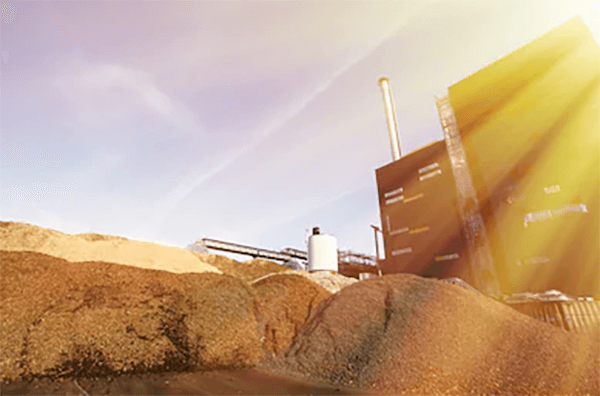With the depletion of fossil energy and the pressure on the ecological environment caused by the pollution caused by its use, biomass as a clean and renewable energy raw material has been the focus of researches in the energy field in recent years. Biomass materials include many types, including forest crops and residues, agricultural crops and residues, animal manure and human sewage, etc.. Most biomass materials contain cellulose, hemicelluloses, and lignin, which are not conducive to the application of biomass for energy production. Therefore, the biomass materials need to be pretreated firstly for biofuel production. Moreover, different biomass materials may need different pretreatment methods and conditions. As a leader in bioenergy technology services, Lifeasible provides technical consulting, project design and program optimization services of various biomass pretreatment technologies. We guarantee to provide high quality technical support services to help customers solve technical problems in the pretreatment process.

Cellulose is a linear polysaccharide polymer of glucose disaccharides having β-1,4-glucoside bonds. Cellulose has biocompatibility and stereoregularity, and is generally insoluble in water. Hemicelluloses consist of a heterogeneous group of polysaccharides made up of pyranoses and furanoses sugar units, including xylose, mannose, arabinose, glucose, and galacturonic acid. Lignin is composed of polyphenols and covalently connects cellulose and hemicellulose. It is a complex three-dimensional cross linked polymer with resistance effect on oxidation, hydrolysis and biodegradation. Lignin is a major obstacle to the utilization of biomass materials in energy production. Therefore, reducing the contents of cellulose, hemicelluloses, and lignin is one of the purposes of pretreatment. In addition, the purposes of pretreatment also include reducing the crystallinity and the degree of polymerization for cellulose, which may affect the hydrolysis efficiency of cellulose. Besides, pretreatment can increase the accessibility of enzymes and microorganisms by reducing the particle size of biomass materials and increasing its specific surface area and porosity.
Pretreatment methods of biomass materials in energy production can be divided into physical pretreatment, chemical pretreatment, physicochemical pretreatment, and biological pretreatment.
Physical pretreatments include mechanical pretreatment and irradiation pretreatment. Physical pretreatment can effectively reduce the degree of crystallinity and polymerization for cellulose, and increase the accessibility of enzymes and microorganisms. Physical pretreatment is often used in combination with other pretreatment methods to further promote cellulose degradation.
Chemical pretreatment uses acidic reagents, alkaline reagents, ozone, ionic liquids, and organic solvents to treat biomass materials to increase the degradability of cellulose and the removal of lignin. Some chemical pretreatment processes are accompanied by the production of inhibitory compounds that will affect the following processes and biofuel yield. Therefore, some methods for removal of inhibitory compounds need to be developed. Chemical pretreatment also requires reagent recovery processes to reduce production costs.
Physicochemical pretreatment includes steam-explosion, liquid hot water, wet oxidation, supercritical fluid and ammonia fiber explosion, which can effectively promote the exposure of cellulose and increase enzyme accessibility.
Biological pretreatment uses bacteria, fungi and enzymes to process biomass materials. Compared with the other three pretreatment methods, the reaction conditions of biological pretreatment are milder, and the cost is lower, but the reaction time is longer accordingly.
Pretreatment is a key step in bioenergy production and is closely related to biofuel yield and cost-effectiveness. Different pretreatment methods are suitable for different biomass materials, and the required reaction conditions are also different. Our experts have extensive expertise in pretreatment processes and can assist customers with various problems in pretreatment techniques. Lifeasible provides technical consulting, project design and program optimization services for these pretreatment technologies. Our service is dedicated to helping customers solve technical problems in biomass pretreatment to increase biofuel yield and cost-effectiveness.
If you are seeking technical support services for biomass pretreatment, Lifeasible is a good choice for you. Please feel free to contact us.
Lifeasible has established a one-stop service platform for plants. In addition to obtaining customized solutions for plant genetic engineering, customers can also conduct follow-up analysis and research on plants through our analysis platform. The analytical services we provide include but are not limited to the following:
Get Latest Lifeasible News and Updates Directly to Your Inbox